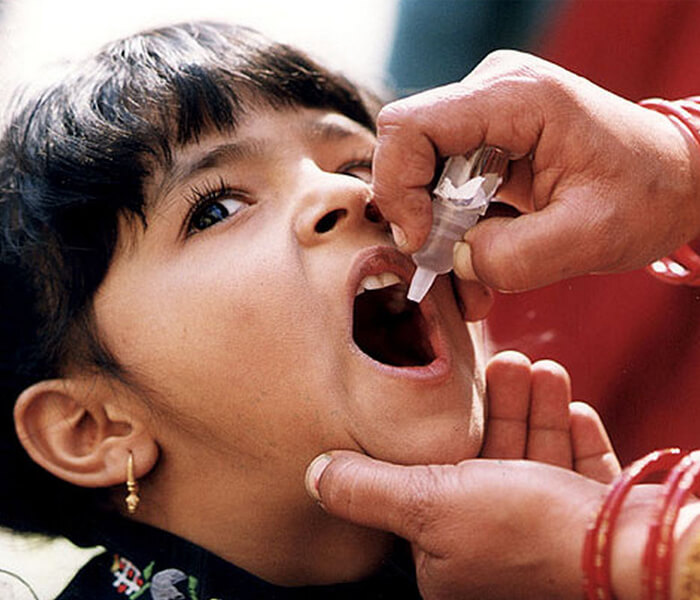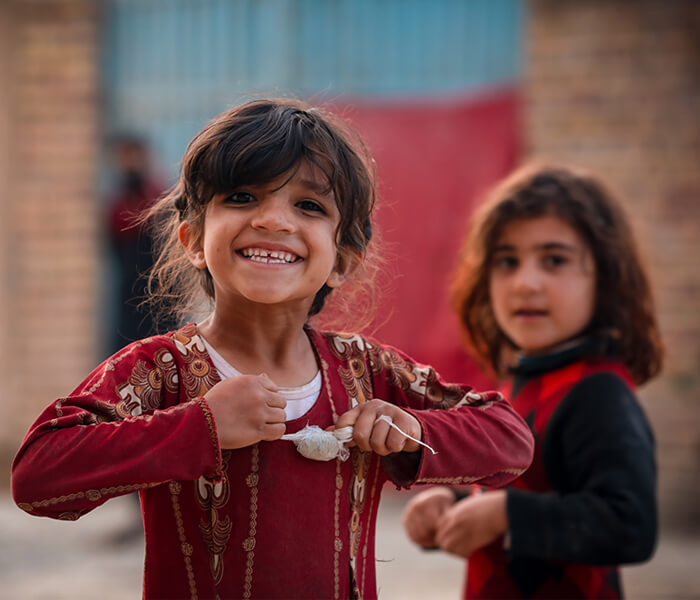
Health challenges that we tackle
While it has been eradicated almost everywhere else in the world, Afghanistan is still a polio-endemic country. This is partly because of the difficulty the immunization teams face obtaining access to reach children in geographically isolated villages and districts. locals, becoming the only organization to overcome these challenges across restricted areas in Afghanistan. We aim to reach every last child in the country and help achieve a global triumph against polio.
We have developed an integrated health plan with a strong focus on Child Health and Immunization, and Maternal & Newborn Health. Our initial target is to reach nearly 500,000 women, men, and children, and we are rapidly expanding our reach to others.
This is what we do in a nutshell:
Implement
Implement integrated Health Services and increase access to healthcare for those who live in geographically isolated areas. We effectively deliver primary healthcare that is based on the Basic Package of Healthcare Service and which foremost targets women and children.
Provide
Provide house-to-house OPV vaccination to small children under 5 years of age, and run a consistent house-to-house immunization campaign of 4 shots of OPV per child. We register all under 2 years of age creating a personal child health record with an up to date schedule of vaccinations and immunizations.
Establish
Establish 20 mobile immunization and primary healthcare teams in 6 high risk districts. Our teams, which consist of both male and female healthcare professionals impleament the program in geographically remote and difficult to access areas.
Mobilize
Mobilize local health forces through a volunteer network of community health workers (CWH) who deliver healthcare, and promote immunization awareness. We empower respected local health professionals to dispel popular vaccine myths, and educate those who might be reluctant or hesitant to receive immunization. Our CWH groups receive formal training in first aid, field triage and support referral.
Fund
Fund the design and construction of new clinics, as well as nursing and midwife training centres.
Educate and empower
Educate and empower midwives and health visitors through mentorship programs, that promote face to face awareness on maternal and newborn care.
Distribute
Distribute free hygiene kits and products to pregnant women and new mothers that aim to reduce maternal and infant mortality because of poor access to healthcare.
Assess
Assess humanitarian needs and identify hidden challenges in a way that we assist policy makers select health priorities. As we aim to reach out to millions, we remain respectful of local customs and traditions and make health checks appealing and safe to women.
Integrate
Integrate the benefits of healthcare with grassroots development projects such as agriculture and handcraft. This will strengthen rural communities, increase social cohesion and help women to be more independent.
Strengthen
Strengthen pandemic response and recovery mechanism. Pandemics, such as COVID-19 have proven to affect gravely the most vulnerable communities in the country. Coronavirus has disrupted immunization services across Afghanistan, creating fears for a global resurgence of polio. What is more, the pandemic has hit Afghan women the hardest, with numbers of domestic violence skyrocketing during the months of lockdown. We are strengthening our humanitarian response to pandemics, delivering consistent immunizations and planning a mental health initiative.
Education

Keeping girls at school and ending child labour
Afghanistan has the one of the lowest literacy rates in the world. It has been estimated that two thirds of Afghan girls do not have access to education. We are determined to change this statistic by offering access to free education and healthcare to girls and boys in rural communities, who would otherwise be excluded. Our education initiatives aim to create equal opportunities in education for all children across Afghanistan.
Initiative
Initiative we run a bring school to children initiative. We deliver full-time education that is aligned with the government curriculum for young children under the age of 15. This initiative specifically targets children who are isolated to geographically remote areas and have difficulty accessing the formal governmental schools. We track and increase enrollment and attendance for young girls who are most likely to be out of school.
Fund
We fund a number of apprenticeships and trainings in teaching, nursing and midwifery. We offer community teachers the Afghan Ministry of Education Program Training.
Donate Resources
We donate much needed school resources such as workbooks, notebooks, literature books, teacher guides and national curriculum-related materials.
Donate Food
We donate food for free school lunches, making education appealing to the most disadvantaged families. We have also established food banks, where the most vulnerable can access daily food supplies and basic hygiene materials.
Targeted Healthcare Beneficiaries
Children
Afghan Provinces

